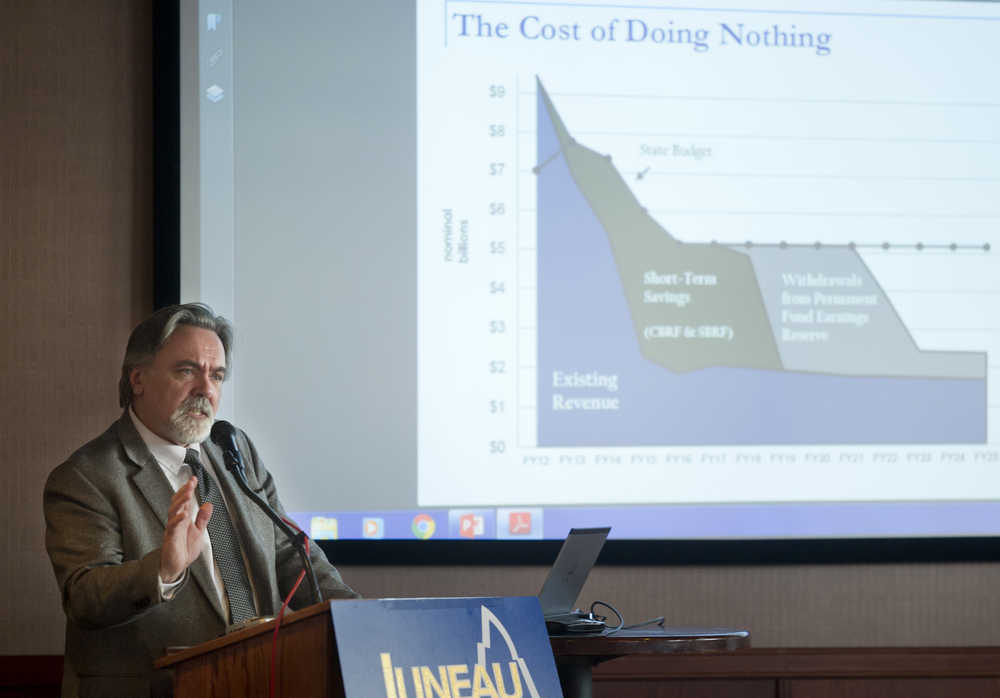On Thursday, Alaska Revenue Commissioner Randall Hoffbeck delivered to the Juneau Chamber of Commerce the same address he’s given more than 90 times to community groups and business groups across Alaska: The state is in fiscal trouble, and a spread of taxes and spending cuts is the best way to fix the problem.
At the end of his speech, he said something new. He no longer believes a state income tax, one of the keystones of Gov. Bill Walker’s fiscal plan, will be implemented in 2016.
“I actually don’t think the income tax is going to move this year,” Hoffbeck said. “It’s still on the plate, the governor still thinks it’s important, and we’re going to push as hard as we can, but we’ve only been able to get one hearing on it so far. We can’t move it if we can’t get a hearing.”
According to records on the Legislature’s online bill tracking system, since the governor introduced an income tax measure in January in both the House and the Senate, the Senate version has been heard in committee just twice. The House version has not been heard at all. On Thursday, the committee calendars for the coming week were posted; neither bill is scheduled for a hearing in the next week. Thursday was the 59th day of the 90-day legislative session.
According to the governor’s proposal, Alaska would revive its income tax and set it at the lowest rate in the nation — 6 percent of a person’s federal income tax payment. Pay $100 in taxes to the federal government, and you’d pay another $6 to the state.
The Department of Revenue estimates that such an income tax would earn about $200 million for the state, enough to take a sizable chunk out of the state’s estimated $3.8 billion annual deficit.
“There just (aren’t) many legislators willing to support it,” Hoffbeck said of the income tax. “A couple of comments they’ve made: ‘Nobody has ever lost an election by opposing an income tax.’”
A proposal to use the investment earnings of the $50 billion Alaska Permanent Fund has been more popular among legislators.
Walker has proposed a measure that would effectively turn the Permanent Fund into a money factory, generating the state revenue through its investments. According to state projections, $3.3 billion per year could be generated for state services under the governor’s plan.
As a consequence, it would drop Permanent Fund Dividend payouts to about $500 starting in 2017, and dividends would float up and down with the price of oil. Currently, dividend payouts are tied to investment success, allowing the state to pay more than $2,000 to every resident, even as it ran a multibillion-dollar deficit.
An alternative proposal from Sen. Lesil McGuire, R-Anchorage, would generate less in revenue for state services but set a $1,000 minimum for dividends.
Both proposals would use only the earnings of the Permanent Fund, not its $50 billion principal, which is protected under the Alaska Constitution.
The Senate Finance Committee will begin hearing both proposals next week.
• Contact reporter James Brooks at james.k.brooks@juneauempire.com.

